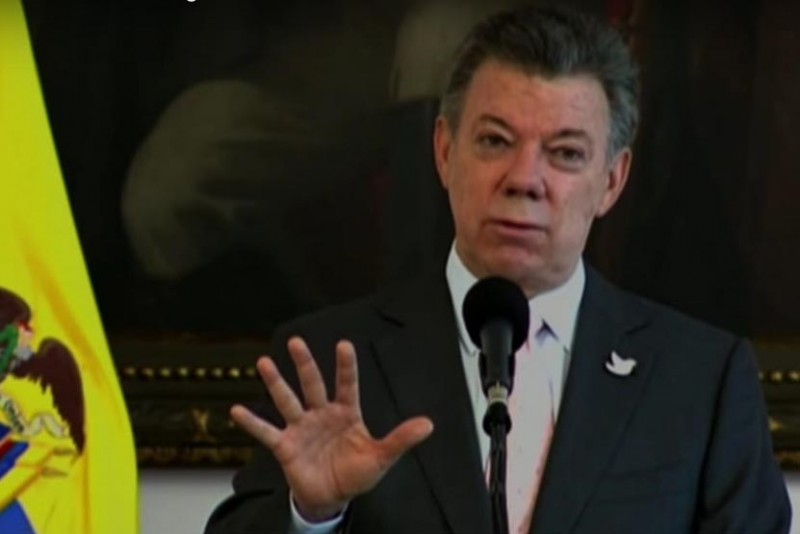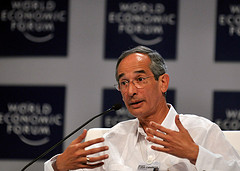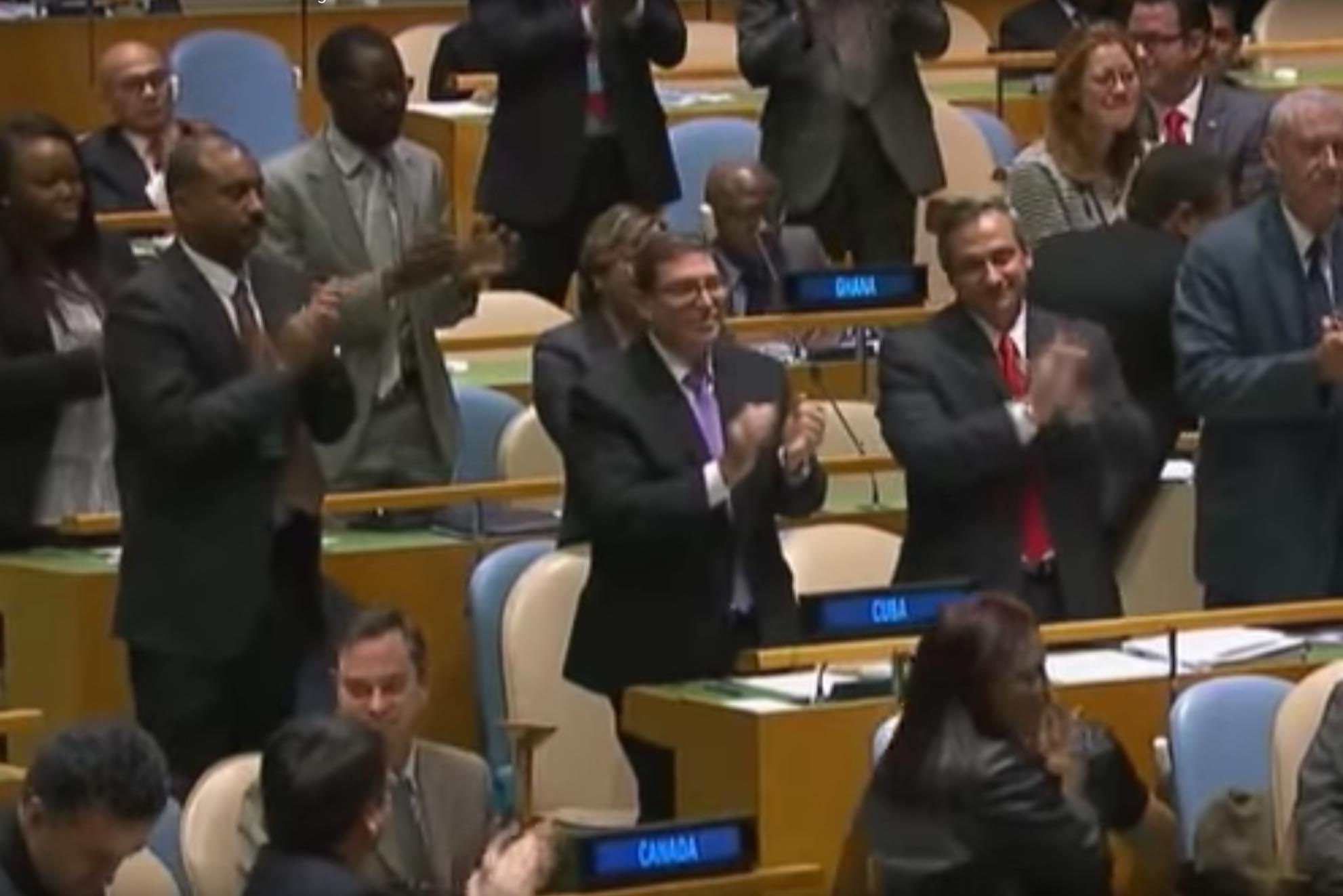
Andes, Colombia, Latin America: Week in Review, Regions
Colombia Government May Call Cease-Fire in January
October 29, 2015 By Staff
Top Story —
Colombian President Juan Manuel Santos plans to call a bilateral ceasefire starting on the first day of 2016 if negotiators from the government and the Revolutionary Armed Forces of Colombia can agree on the fifth and final agenda item in ongoing peace talks— restitution for victims of the internal conflict.
Santos’ announcement marks the first time that the government has agreed to enter a bilateral truce since the two sides began peace negotiations three years ago.
In September, Santos and the FARC’s commander, Rodrigo Londoño Echeverri, alias Timochenko shook hands for the first time after setting a deadline of March 23, 2016 for all items on the agenda to be resolved, and for the final agreement to be put to a vote by Colombian constituents. The leaders also agreed that FARC rebels would disarm within 60 days of the deal being signed.
The FARC have observed a unilateral ceasefire since July; they have called for the same measure by the government since talks began in 2012. To date, the Santos administration has refused, citing past failed negotiations in which the rebels took advantage of truces to re-arm.
Government and rebels negotiators have recently resolved several points on the agenda, the most delicate of them concerning the punishment of rebels accused of committing crimes. The two sides have also reached agreements over land rights, drug trafficking and the political participation of rebels after the peace process. They have also vowed to work together to clear minefields and search for the estimated 25,000 people who have gone missing since the conflict began in 1964.
Colombia’s 51-year-old internal conflict has claimed 220,000 lives and displaced five million people, according to The Associated Press.
Headlines from the Western Hemisphere
North America
- A Human Rights Watch report released Wednesday highlights evidence suggesting Mexico’s federal police shot and killed civilian protesters attempting to flee and surrender in two separate incidents this year.
- Mexico has deployed thousands of laborers and its navy to remove masses of foul-smelling seaweed from beaches along the Carribean coast which have raised fears of hampering the crucial tourism industry.
- Mexico’s Supreme Court convened Wednesday to debate a citizen group’s efforts at securing legal permission to consume marijuana, which if successful could open the door for the further relaxation of marijuana laws nationwide.
Caribbean
- Italy’s Prime Minister Matteo Renzi, during the first-ever state visit by his country’s leader to Cuba, said in Havana on Wednesday that Italy is committed to strengthening economic ties with Cuba in the years to come, urging Italian businesses to invest there.
- Puerto Rico’s Government Development Bank announced Wednesday that its liquidity, or its cash available for spending, dropped to $875 million at the end of September, highlighting concerns that a fiscal crisis will force the territory to default on an upcoming bond payment.
Central America
- The number of women fleeing gangs and domestic violence in El Salvador, Guatemala and Honduras has increased fivefold since 2008 and continues to rise, according to a report released Wednesday by the UN’s refugee agency, which compares the crisis to similar patterns of migration in the Middle East and Africa.
- The International Criminal Court announced Wednesday it will not open a full investigation into crime allegations connected to Honduras’ 2009 coup, noting that despite the credibility of accusations of human rights violations they do not qualify as crimes against humanity under the international court’s jurisdiction.
Andes
- The coca growers’ union in Bolivia announced that they will sell 20 tons of the crop, illegal under UN conventions, to finance President Evo Morales’ pursuit of another presidential term in 2019—an effort that will require removing a constitutional ban blocking his third successive presidential term.
- A new report highlighting the Venezuelan central bank’s sales of its gold reserves in order to make bond payments has been taken as evidence a default is looming, although others analysts have commented on Venezuela’s consistent reliability as a debtor in the face of such predictions.
Southern Cone
- An opinion poll demonstrated thattwo out of every three Brazilians hope for President Dilma Roussef’s impeachment, a position activists highlighting Wednesday when they chained themselves to a pillar in the congress demanding that lower house speaker Eduardo Cunha initiate impeachment proceedings, which he has delayed due to his own corruption accusations.
- Allies of the defeated Argentine presidential candidate Sergio Massa said Wednesday that they will not support ruling party candidate Daniel Scioli, which damages his chance to win over undecided voters against Mauricio Macri.





